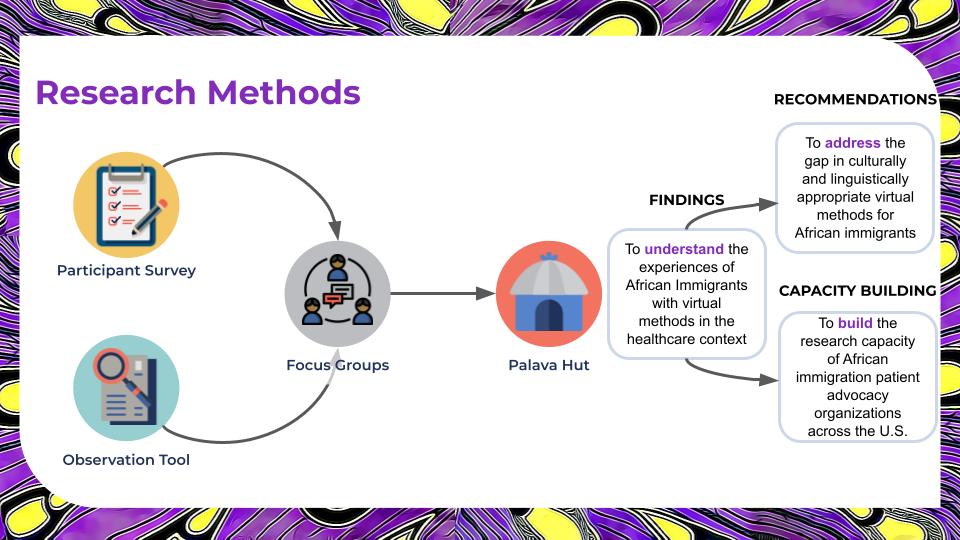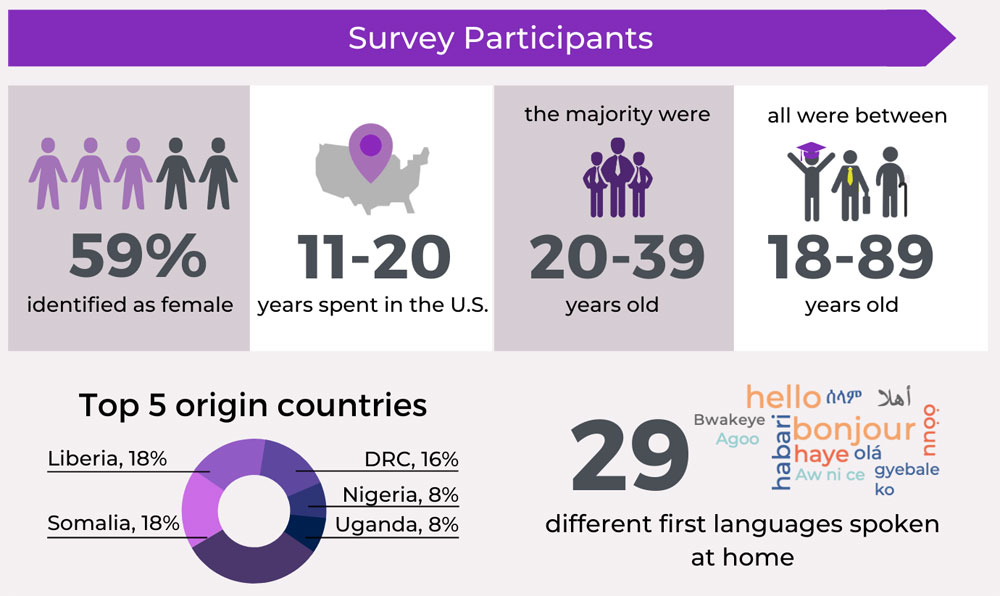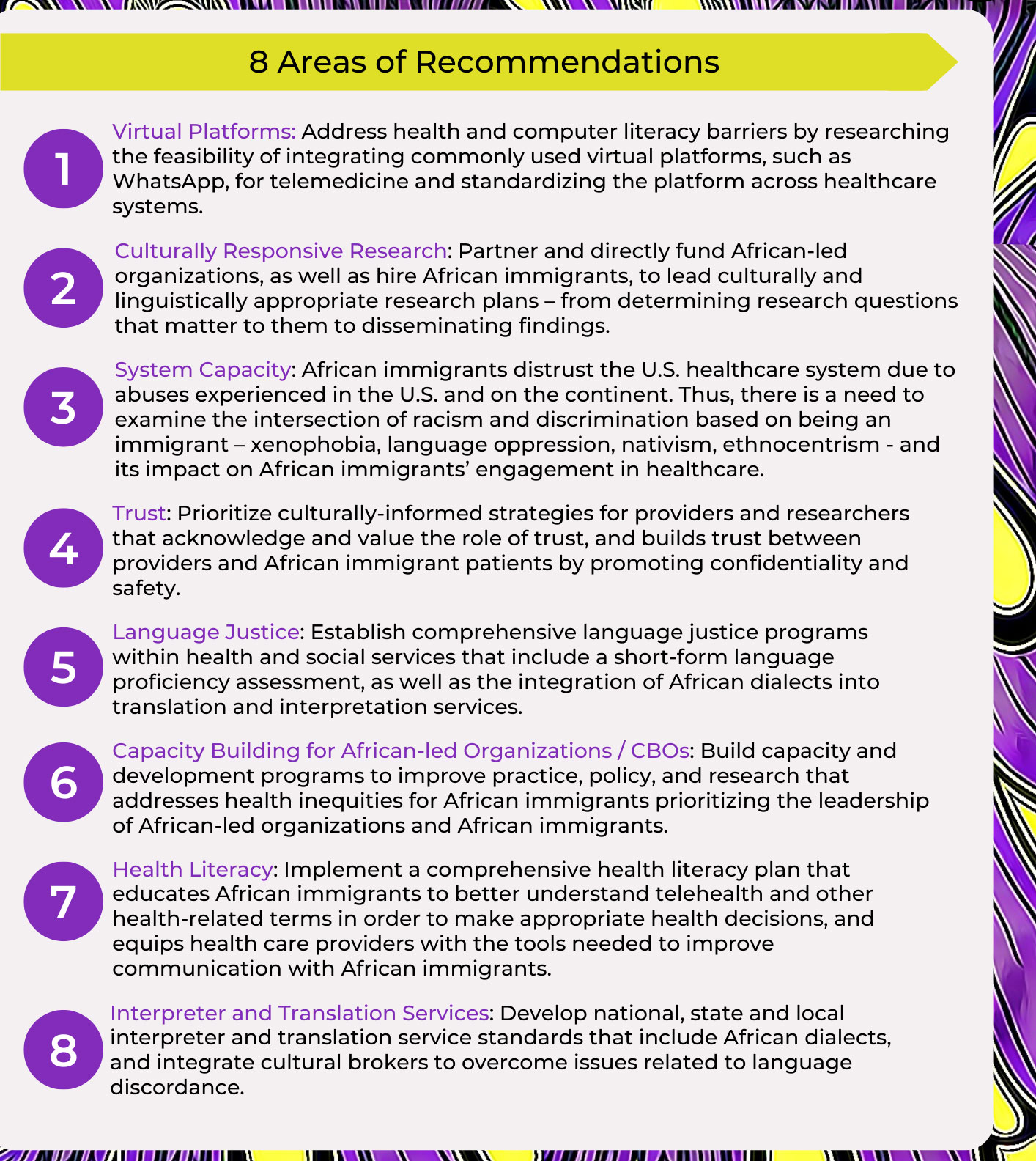"What type of medicine is that?" Understanding the gaps in culturally & linguistically appropriate virtual engagement methods for African immigrants.
African immigrants are at an increased risk of contracting COVID-19 and experiencing severe health-related symptoms. COVID-19 caused healthcare facilities to adopt virtual telehealth platforms, but many lacked the strategies to support access to and use of telehealth services. Our project documented the experiences of African immigrants in utilizing virtual platforms. We increased the capacity of African-led organizations in Massachusetts, Minnesota, Pennsylvania, and Vermont to engage in patient-centered research and develop recommendations to address the gaps in culturally and linguistically appropriate virtual telehealth methods for African immigrants.

Click on the images below to enlarge (PDF)
4 Thematic Findings
Use of Technology & Telehealth
- 80% of participants had an internet connection and/or smartphone
- Frequently used apps: Facetime, Zoom, WhatsApp
- Desired top 5 qualities for using telehealth: Ease of use, connectivity, clarity, audio, video
Trust in Healthcare Provider: 85% of participants had a high level of trust and confidence in western medicine
Health Literacy: 88% of participants with a regular PCP found it easier to say they did not understand them vs. 71% of participants without a regular PCP
Language Barriers: 79% of participants with a language barrier when using technology were more likely to be unfamiliar with telehealth
[ CLICK HERE TO DOWNLOAD COMPLETE INFOGRAPH – PDF ]
Our Partners

This project was funded by the Patient-Centered Outcomes Research Institute (PCORI) Eugene Washington PCORI Engagement Award (EAIN-00201)



